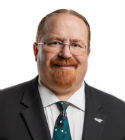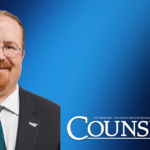Share

Stories of victory over substance abuse are compelling: The high school athlete who turns his life of opiate abuse into a college career, the young mother who reunites with her toddler after overcoming meth abuse, and the fa-mous actor who emerges anew after a rehab stint. These stories reflect the changing paradigm of public sentiment concerning addiction.
But as CEO of California’s largest organization representing addiction treatment programs and counselors, and despite posi-tive news coverage about overcoming addiction, I am not jumping for joy.
Since the media only tells part of the story, and paparazzi quickly seek the next celebrity du jour, stories of victory actually ignore the incredible shortcomings Californians face when trying to get clean and sober. Addicts show courage for recognizing that they need help, yet thousands of addicts and their loved ones in California are finding out that the incredible act of com-mitting to treatment may be a dead end or at least a battle.
Sadly, those who seek treatment are often sold to the highest bidder, and this is perfectly legal in California. People entering treatment are vulnerable physically and mentally. Their loved ones are often so desperate to end the chaos of addictive be-havior that they make excellent targets for scam artists and so called “interventionists” who apply aggressive sales tactics, tell-ing patients and families the addict will die if they do not act upon the referring agent’s directive.
Add into these scenarios unscrupulous sober living homes willing to bill individuals and insurers without shame and you have a perfect storm of abuse, waste of resources, and tragically poor recovery rates.
Also, addiction counselors in California are not required to have a license to provide private practice in neighborhoods where people could be treated at less severe points of the disease’s progression. Hang a shingle and start treating people the same day. This has led companies with unlicensed facilities in California to provide kickbacks to “junkie hunters” to recruit pa-tients from others states to receive inferior treatment and often guarantee relapse.
As I testified before Congress in December 2017, this is a whole-team approach driving the bus for profits. There should be a federal law against patient brokering. Any potential legislation at the federal and state levels must be crafted to support the industry and its good actors, while also weeding out the bad actors. Ultimately, the goal is to have an industry ethical and strong enough to support itself with minimal oversight.
CCAPP is a driver of California Assembly Bill 285, introduced last year as the Drug- and Alcohol-Free Residences Act. This bill would define a “drug- and alcohol-free residence” as a residential property operated as a cooperative living arrangement to provide an alcohol- and drug-free environment for recovering addicts.
It would authorize a drug- and alcohol-free residence to demonstrate its commitment to providing a supportive recovery environment by applying and becoming certified by a certifying organization approved by the State Department of Health Care Services.
AB 285 declares that a residence housing people committed to recovering from drug or alcohol addiction is presumed to be drug and alcohol free if certified by an approved certifying organization such as CCAPP.
This bill makes sense for multiple reasons. It would require an approved certifying organization to maintain an affiliation with a state-recognized national organization; establish procedures to administer the application, certification, renewal, and disci-plinary processes for a drug- and alcohol-free residence; and investigate and enforce violations by a residence of the organiza-tion’s code of conduct. The bill specifies that an operator seeking a certified residence must submit documentation to an ap-proved certifying organization.
A certifying organization would be required to maintain and post online a registry containing specified information of a cer-tified residence pursuant to these provisions, and would require the state to maintain and post online a registry that contains specified information regarding each residence and operator that has had its certification revoked.
This bill would require that a state or county that directs substance abuse treatment—or a judge or parole board that sets terms and conditions for the release, parole, or discharge of a person from custody—first refer that person to a residence on an approved certifying organization’s registry, provided there is availability in such a residence.
At some call centers, workers are paid bonuses for how many admissions they sign up, and many use high-pressure sales tactics on desperate callers. It is up to that employee to convince the caller to travel to the treatment center the call center represents, regardless of whether going away from home was the person’s intention and whether the treatment center pro-vides the right therapies and environment for the consumer. Treatment in sunny Florida, especially during cold weather, sounds appealing to someone living in other parts of the country.
Making everything public and transparent, through turning bills like AB 285 into law, could put junkie hunters and interven-tionists out of business.
All of our standards, recommendations, and efforts are focused on protecting the consumer. All of our best practices and efforts exist so that addicts—who are all extremely vulnerable—receive all of our possible protections.
The substance use disorder treatment and recovery process is highly complex and, as a result, so is the industry that pro-vides these services. The better trained, organized, and coordinated our industry is, the better our services will be for con-sumers.
CCAPP is promoting common sense legislation to prohibit patient brokering in our state and to provide voluntary certifica-tion for recovery residences tied to public referrals and funding. By eliminating kickbacks for referring agents and denying them referrals and public funding, we believe we can stop the “Florida model” from transplanting to California and other states.
In doing so we are confident we will save more lives, reunite more families that have been torn apart by untreated or poorly treated addiction, and make more communities safer in the process.
About the Author
Pete Nielsen, CADC-II, is the CEO
of the California Consortium of Addiction Programs and Professionals (CCAPP). Mr. Nielsen has worked in education as a campus director, academic dean, and an instructor. He has also worked in the SUD field for many years as an interventionist, family recovery specialist, counselor, and administrator.
Pete Nielsen is the President and Chief Executive Officer for the California Consortium of Addiction Programs and Professionals (CCAPP), CCAPP Credentialing, CCAPP Education Institute and the Behavioral Health Association of Providers (BHAP), and Publisher of Counselor Magazine
CCAPP is the largest statewide consortium of addiction programs and professionals, and the only one representing all modalities of substance use disorder treatment programs. BHAP is the leading and unifying voice of addiction-focused treatment programs nationally.
Mr. Nielsen has worked in the substance use disorders field for 20 years. In addition to association management, he brings to the table experience as an interventionist, family recovery specialist, counselor, administrator, and educator, with positions including campus director, academic dean, and instructor.
Mr. Nielsen is the secretary of the International Certification and Reciprocity Consortium, and the publisher for Counselor magazine. He is a nationally known speaker and writer published in numerous industry-specific magazines. Mr. Nielsen holds a Master of Arts in counseling psychology and a Bachelor of Science in business management.











 Counselor Magazine is the official publication of the California Association of Addiction Programs and Professionals (CCAPP). Counselor offers online continuing education, article archives, subscription deals, and article submission guidelines. It has been serving the addiction field for more than thirty years.
Counselor Magazine is the official publication of the California Association of Addiction Programs and Professionals (CCAPP). Counselor offers online continuing education, article archives, subscription deals, and article submission guidelines. It has been serving the addiction field for more than thirty years.